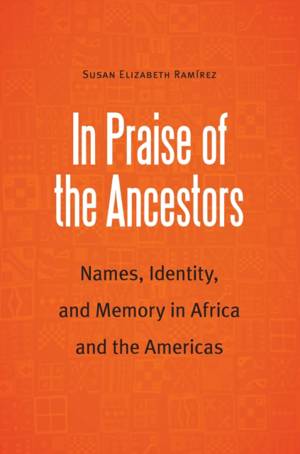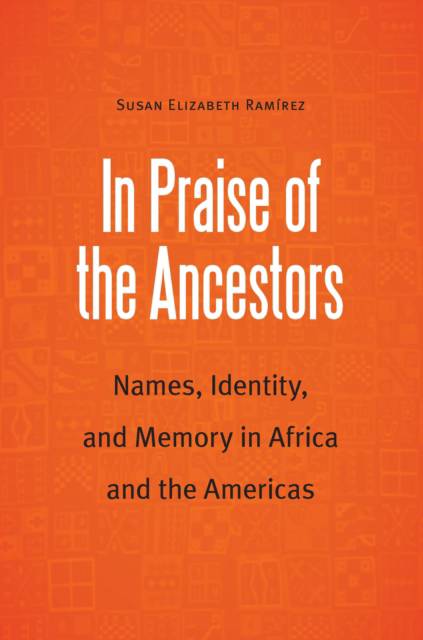
- Retrait gratuit dans votre magasin Club
- 7.000.000 titres dans notre catalogue
- Payer en toute sécurité
- Toujours un magasin près de chez vous
- Retrait gratuit dans votre magasin Club
- 7.000.000 titres dans notre catalogue
- Payer en toute sécurité
- Toujours un magasin près de chez vous
In Praise of the Ancestors
Names, Identity, and Memory in Africa and the Americas
Susan Elizabeth Ramirez
45,95 €
+ 91 points
Format
Description
Apart from collective memories of lived experiences, much of the modern world's historical sense comes from written sources stored in the archives of the world, and some scholars in the not-so-distant past have described unlettered civilizations as "peoples without history." In Praise of the Ancestors is a revisionist interpretation of early colonial accounts that reveal incongruities in accepted knowledge about three Native groups. Susan Elizabeth Ramírez reevaluates three case studies of oral traditions using positional inheritance--a system in which names and titles are inherited from one generation by another and thereby contribute to the formation of collective memories and a group identity. Ramírez begins by examining positional inheritance and perpetual kinship among the Kazembes in central Africa from the eighteenth to the mid-twentieth centuries. Next, her analysis moves to the Native groups of the Iroquois Confederation and their practice of using names to memorialize remarkable leaders in the seventeenth and eighteenth centuries. Finally, Ramírez surveys naming practices of the Andeans, based on sixteenth-century manuscript sources and later testimonies found in Spanish and Andean archives, questioning colonial narratives by documenting the use of this alternative system of memory perpetuation, which was initially unrecognized by the Spaniards. In the process of reexamining the histories of Native peoples on three continents, Ramírez broaches a wider issue: namely, understanding of the nature of knowledge as fundamental to understanding and evaluating the knowledge itself.
Spécifications
Parties prenantes
- Auteur(s) :
- Editeur:
Contenu
- Nombre de pages :
- 248
- Langue:
- Anglais
- Collection :
Caractéristiques
- EAN:
- 9781496231475
- Date de parution :
- 01-06-22
- Format:
- Livre broché
- Format numérique:
- Trade paperback (VS)
- Dimensions :
- 152 mm x 229 mm
- Poids :
- 367 g







